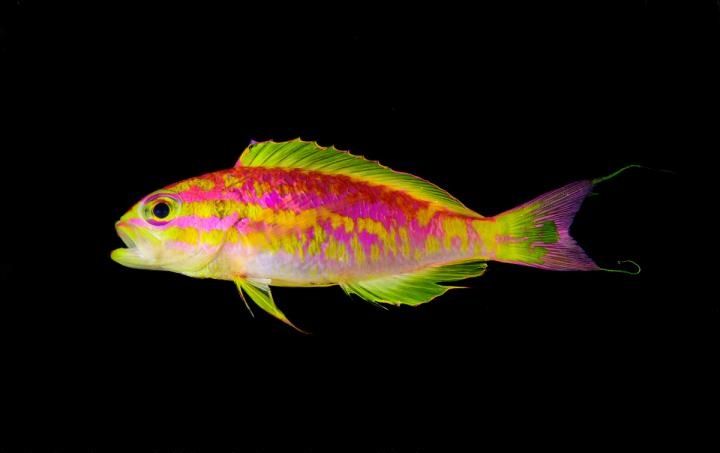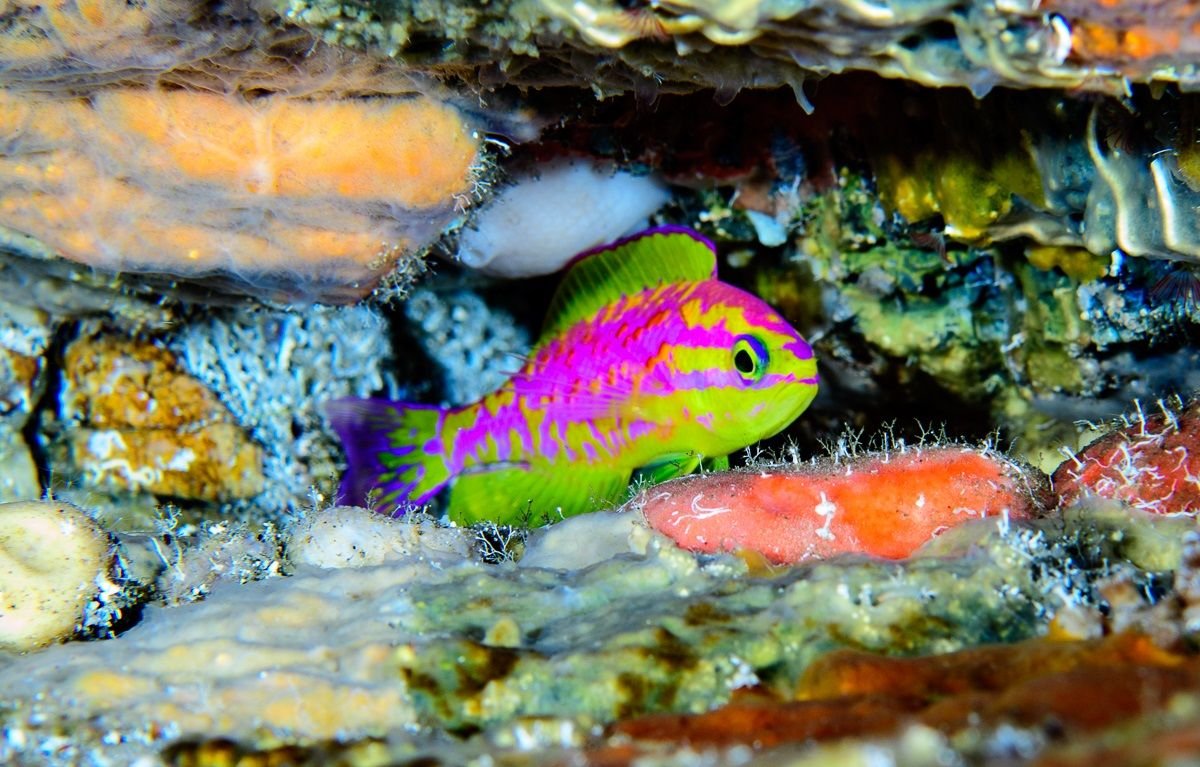
A new species of brightly-colored deep sea fish has "enchanted" scientists with the California Academy of Sciences, who were so distracted by their discovery they missed an enormous six-gilled shark swimming right above them.
Researchers were diving some 400 ft below the surface of an archipelago 600 miles off the coast of Brazil when they spied the technicolor critter nestled in the rocky reef. The team described the new species—named Tosanoides aphrodite after the Greek goddess of love and beauty—in the journal ZooKeys.
"I am always thrilled when we find new species, but this one was so spectacular and unexpected that we were almost euphoric the whole dive," Luiz Rocha, the Academy's Curator of Fishes, told Newsweek.
Although it's named for Aphrodite, with its dramatic pink and yellow stripes the males of the species wouldn't look out of place in a punk band or a 1980s black light party. Females are decorated more demurely in a solid red-orange color.
"This is one of the most beautiful fishes I've ever seen," Rocha said in a statement. "It was so enchanting it made us ignore everything around it."
The mysterious creature inhabits region of ocean known as the twilight zone, beyond the reach of much of the light that hits the surface. "Fishes from the twilight zone tend to be pink or reddish in color," said Academy researcher Hudson Pinheiro in the statement. "Red light doesn't penetrate to these dark depths, rendering the fishes invisible unless illuminated by a light like the one we carry while diving."
The team aren't sure exactly why these fish develop their dramatic coloring, but it's an active area of research for the lab. "The prevailing hypothesis is that they use these colors as camouflage since there is no red or blue light there, but male and female are so different that they must be using it for something else," Rocha told Newsweek. "We are sequencing their vision genes in our lab to try to understand this better."
Scientists examined the fish under the microscope and analyzed its DNA. They discovered it is the first species of its genus known to inhabit the Atlantic ocean.
Sprawling through a region 200 ft to 500 ft deep, twilight zone reefs, are above the region explored by conventional submarines but too deep for recreational divers. This means the dark and mysterious habitats are relatively unexplored and potentially rich in biological secrets.

Coral reefs are under threat from rising ocean temperatures and increasingly acidic waters. Back in 2016, a heatwave killed almost one-third of Australia's Great Barrier Reef. But, scientists recently reported parts of the iconic system are recovering from the event that also lead to mass bleaching.
"In a time of global crisis for coral reefs, learning more about unexplored reef habitats and their colorful residents is critical to our understanding of how to protect them," said Rocha in the statement.
Next, his team plans to explore the Indian Ocean. "There has been virtually no scientific diving done there deeper than 200 feet," Rocha told Newsweek. "Our team is heading to Zanzibar next December to change that—and hopefully find more spectacular new species."
In other marine news, researchers recently identified three new types of snailfish swimming five miles below the surface, deep in the Atacama Trench—a ditch that cuts through the floor of the Pacific Ocean about 100 miles off the coast of Chile and Peru.
This article has been updated to include further comment from Luiz Rocha.
Uncommon Knowledge
Newsweek is committed to challenging conventional wisdom and finding connections in the search for common ground.
Newsweek is committed to challenging conventional wisdom and finding connections in the search for common ground.
About the writer
Katherine Hignett is a reporter based in London. She currently covers current affairs, health and science. Prior to joining Newsweek ... Read more
To read how Newsweek uses AI as a newsroom tool, Click here.








